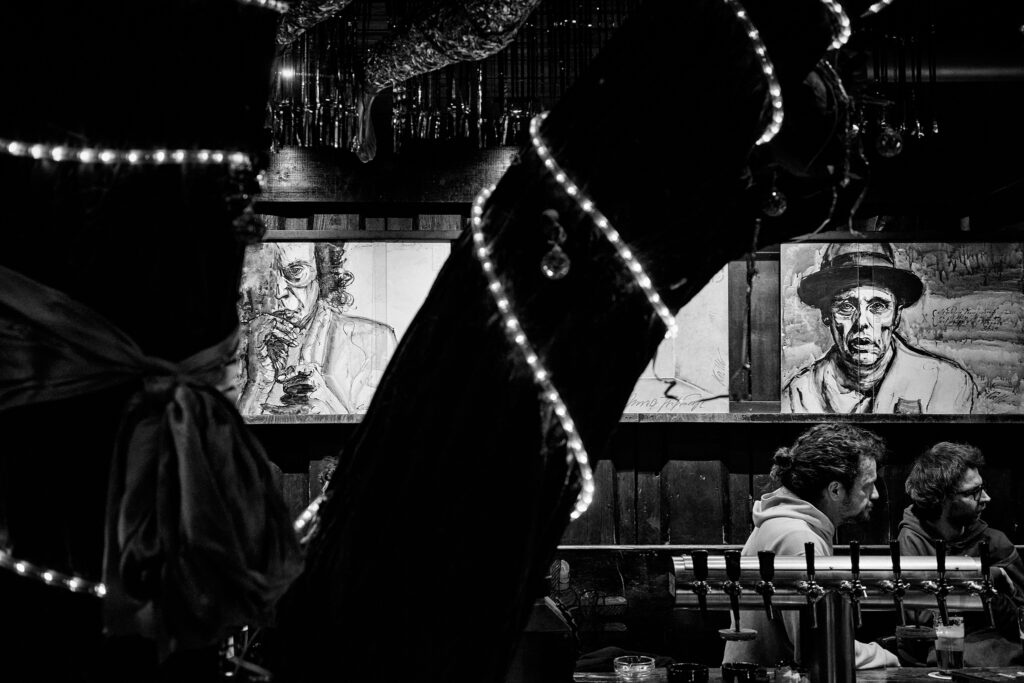
Image above: The Distille Bar in Heidelberg’ s Old Town, 2024, Jan Eckert.
Where Academic History Meets Tourist Flows
Heidelberg embodies the friction between academic permanence and touristic temporality. Germany’s oldest university environment creates patterns of contemplative scholarship and knowledge accumulation, while mass tourism introduces rapid cycles of consumption. This tension is particularly evident in historic spaces that must balance preservation with accessibility.
Post-Efficiency Transformation
Germany’s oldest university town demonstrates how academic rhythms create alternatives to efficiency-driven time. From contemplative library spaces to high-precision laboratories and a vibrant nightlife, Heidelberg’s academic environment enables temporal patterns that prioritise socio-cultural use-value over commercial productivity, while historic spaces like the Old Town hold the potential to foster slow cultural exchange beyond business metrics.
Intergenerational Dynamics
The city maintains cultural continuity despite constant population renewal through student cycles and tourist flows. Historic university spaces create environments for intergenerational knowledge transfer, while shared urban spaces enable caring relationships between permanent residents and temporary academic communities across generations.
Climate Reslilience
Heidelberg’s historic centre faces the dual pressures of climate change and tourism intensity. The challenge of preserving heritage while adapting to environmental change creates opportunities to explore how traditional urban spaces can evolve while maintaining high quality habitats for resident and visitor communities.
